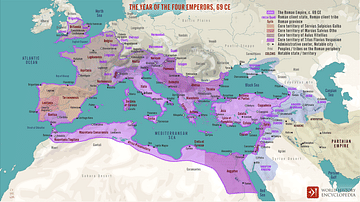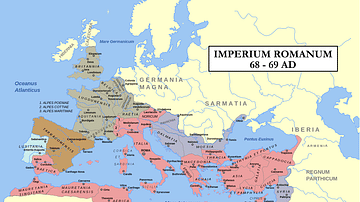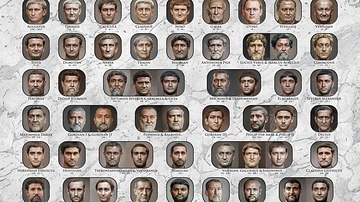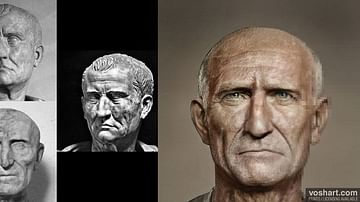Illustration
A photorealistic representation of what the Roman emperor Vespasian (r. 69-79 CE) may have looked like. Pictured alongside the reconstruction are the artworks and statuary used as references. From left to right and top to bottom, these are the Louvre bust; Glyptotek bust; Capitoline bust; and the bust from the National Archaeological Museum, Naples.
Based on contemporary and near contemporary descriptions, as well as archaeological evidence. Made using Photoshop and Artbreeder, a neural net tool.
Cite This Work
APA Style
Voshart, D. (2020, October 22). Vespasian (Artistic Facial Reconstruction). World History Encyclopedia. Retrieved from https://www.worldhistory.org/image/12987/vespasian-artistic-facial-reconstruction/
Chicago Style
Voshart, Daniel. "Vespasian (Artistic Facial Reconstruction)." World History Encyclopedia. Last modified October 22, 2020. https://www.worldhistory.org/image/12987/vespasian-artistic-facial-reconstruction/.
MLA Style
Voshart, Daniel. "Vespasian (Artistic Facial Reconstruction)." World History Encyclopedia. World History Encyclopedia, 22 Oct 2020, https://www.worldhistory.org/image/12987/vespasian-artistic-facial-reconstruction/. Web. 11 May 2025.






